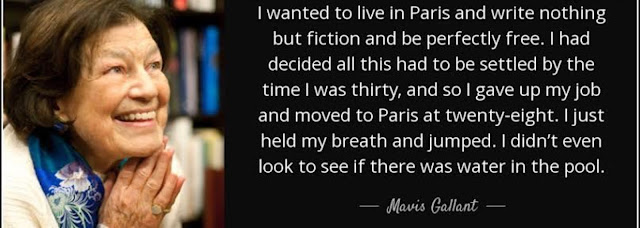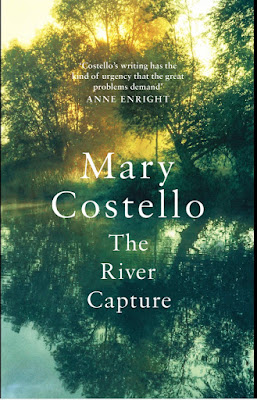Mariam Karpilove
“Theater: A Sketch” this story, previously existing only in hand written form in Yiddish has been translated by Jessica Kirzane.
1888 - Minsk, Belarus
1905 -Moves to New York City, later moves to Bridgeport, Connecticut
1956 - Bridgeport, Connecticut
This story, one of hundreds she wrote ,is the first to be translated from Yiddish into English. Set in the world of Yiddish Theater in New York City, around 1939. Hitler was in power in Germany but America had not yet entered the war. German anti-Semitic atrocities were beginning to be reported in The Forward and elsewhere but the full horrors were not yet a matter of public consciousness.
As we begin, we are at the office of a director of Yiddish plays. A woman is there to offer her play for production. The producer and musical director, , both men,have a markedly patronizing attitude toward the playwright, suggesting it is scenery and costume that are most important. I want to share with you enough to give a feel for the encounter and see what a joy Kizane has given us:
“The director impatiently glanced from his clock to the door of his office. He had an appointment with a young lady who had written a play. The musical director was also there to hear the lady read her play to see how much music he could insert into it and where it would go.
The two theatre men had big plans for how they would make the play happen. They both agreed that the most important elements of any production were the scenery and the music. It was nice if the writing went well with it. And this play would attract more interest because it was written by a woman.
“A Lady with a Play,” muttered the director, who was also the star, with a nasal twang. “That’s what I have here! What a fine name for a play—A Lady with a Play! That sounds like a hit!”
The musical director demurred, saying there would be plenty of time to give the “child” a name. He seemed to recall that the lady had already named the play herself…
“Who cares what she called it? I can change it to whatever I like. I can write the whole thing over if I want to. She won’t object, so long as I agree to put on her play. It’s her first ‘baby’ isn’t it?”
She begins to read them the play. The men only half pay attention. The producer says a play by a woman will market well.
“She had a captivating voice, calm and gentle, that stroked and rock them to sleep. Seeing the effect her voice was having on them, she raised it higher and louder. She played the role of the heroine. The partisans in the forest were asleep and didn’t see the danger, the murderous Nazis were approaching. The heroine, the heroic partisan, cried out, “Wake up! Wake up! You have to get up! They’re coming! Shoot! Shoot!” She was so absorbed in the role that she seemed to have frightened herself with her screams.
Even more than she, the men who were listening to her were startled. They leapt to their feet and their eyes darted around the room. “Huh? What? Where’s the fire? What happened?”
“The whole world is on fire,” the playwright lamented in a tragic voice. “The whole world is on fire, and we’re asleep…”
Hearing her answer, they calmed down. They exchanged glances and then asked her to keep reading.
She read on. In order to prove to her that they weren’t asleep, they interrupted her with questions that only served to demonstrate that they had no idea what her “skit” was about.
“What happens next?” asked the star director. “What happens after he forces her against a wall? What happens with the courtesan?”
The confusion between “partisan” and “courtesan” in the passage below is a brilliant touch, so sad but still darkly hilarious. A Play about a courtesan sounds like a much better draw then one about partisans.
The men want woman in the play to have a baby with the resitance leader, for add pathos and “liven up the play”. I laughed out loud when the musical director suggested adding a group dance number in the forest.
The playwright loses control:
“This isn’t an operetta or a burlesque!” the playwright cried. “It’s a tragedy, a memorial to the victims, to the martyrs, to all those who were killed…” She was overcome with emotion and couldn’t say anymore. She placed the manuscript back in its folder and made a move to return it to the briefcase, but the star director stopped her, telling her to calm down. He told her to read the play to the end and then they would talk business. They wouldn’t add anything to the play or take anything away without her permission. Of course some changes would be necessary to make the play appropriate for the stage. Writing is one thing and acting is another. But together, these two things… She has rich material, but it could be improved”
I do not want to relay to much more about this work, just imagine Grace Paley and Roger De Bris collaborting.
This story is tremendous fun and takes us into a nearly lost world,that of Yiddish theater. This is a delightful work.
From The Encyclopedia of The Jewish Women.
Miriam Karpilove was one of the most prolific and widely published women writers of Yiddish prose. Her short stories and novels explore issues important in the lives of Jewish women of her generation. Frequent themes are the upbringing of girls and women in Eastern Europe, the barriers they encounter when they seek secular education, and the conflicts they experience upon immigration to North America. For instance, one of Karpilove’s best-known works, Dos Tagebukh fun an Elender Meydl, oder der Kamf Gegn Fraye Libe [The diary of a lonely girl, or the battle against free love] addresses the central anxiety of the young immigrant woman: how to negotiate emotionally satisfying relationships in a new, sexually liberated culture.
Born in a small town near Minsk in 1888, to Elijah and Hannah Karpilov, Miriam Karpilove and her nine siblings were raised in an observant home. Her father was a lumber merchant and builder. Karpilove was given a traditional Jewish and secular education, and was trained as a photographer and retoucher. After immigrating to the United States in 1905, she became active in the Labor Zionist movement and spent the latter part of the 1920s in Palestine. She resided in New York City and in Bridgeport, Connecticut, where several of her brothers had settled.
One of a handful of women who made their living as Yiddish writers, Karpilove debuted in 1906, publishing dramas, feuilletons, criticism, sketches, short stories, and novellas in a variety of important Yiddish periodicals during her fifty-year career. Her work appeared in Fraye Arbeter Shtime, Tog, Groyser Kundes, Tsukunft, Forverts, Haynt, Yidisher Kemfer, and Yidishes Tageblat, among others. She is best known, however, as a writer of serialized novels. More than twenty of these appeared in leading American Yiddish daily newspapers such as Forverts, Morgen-Zhurnal, and Tog. During the 1930s, Karpilove was a member of the Forverts staff, publishing seven novels and numerous works of short fiction in that paper between 1929 and 1937. Only five of Karpilove’s works were published in book form.
Jessica Kirzane.
https://jessicakirzane.com/
Jessica Kirzane teaches Yiddish language as well as courses in Yiddish literature and culture. She received her PhD in Yiddish Studies from Columbia University in 2017. Kirzane is the Editor-in-Chief of In geveb: A Journal of Yiddish Studies. In addition, she has held several positions at the Yiddish Book Center: Translation Fellow in 2017-18, Pedagogy Fellow in 2018-19, and as an editor and contributor to the Teach Great Jewish Books site of the Yiddish Book Center. Her research interests include race, sex, gender, and regionalism in American Jewish and Yiddish literature.
I hope to soon read her translation of Diary of a Lonely Girl, or The Battle against Free Love forthcoming January 2020.
I hope she is working on a
collection of short stories by Miriam Karpilove.
Mel u























